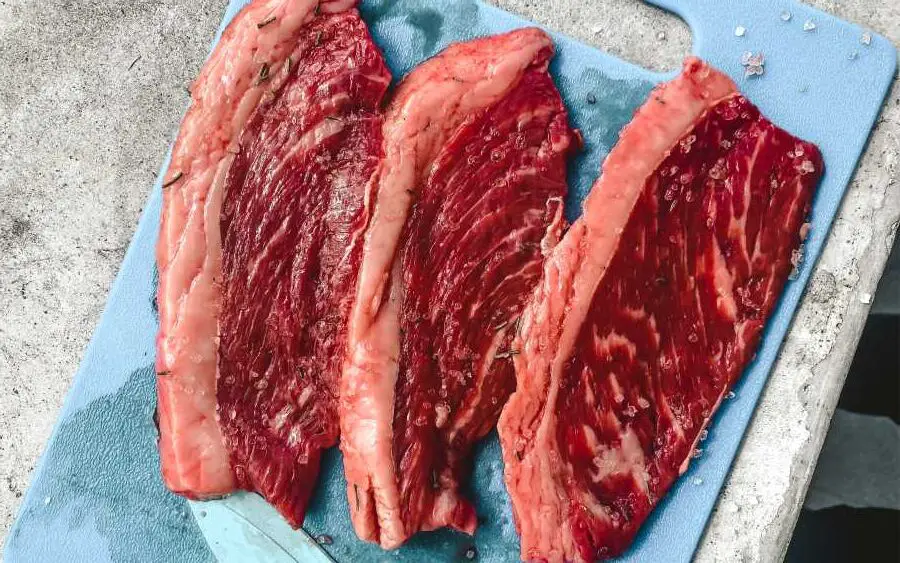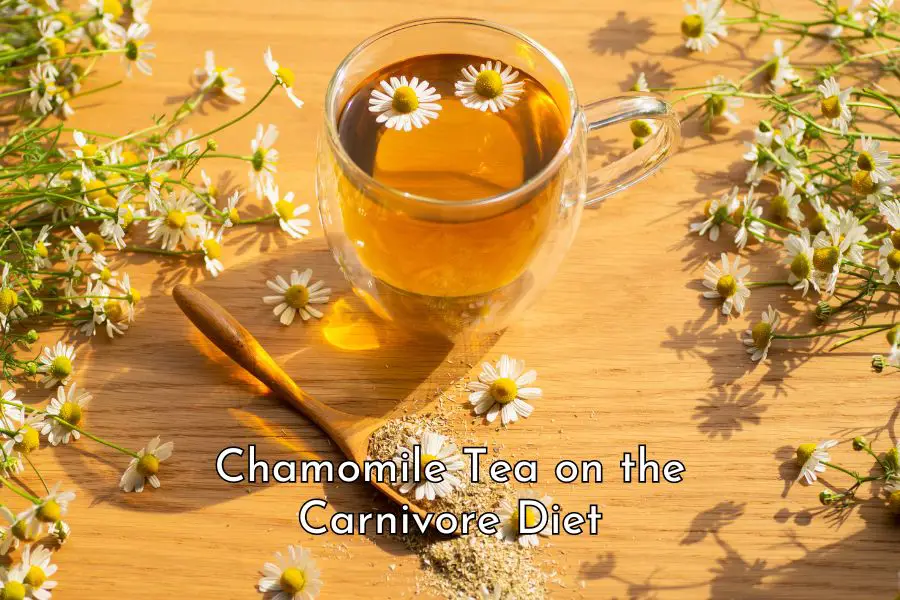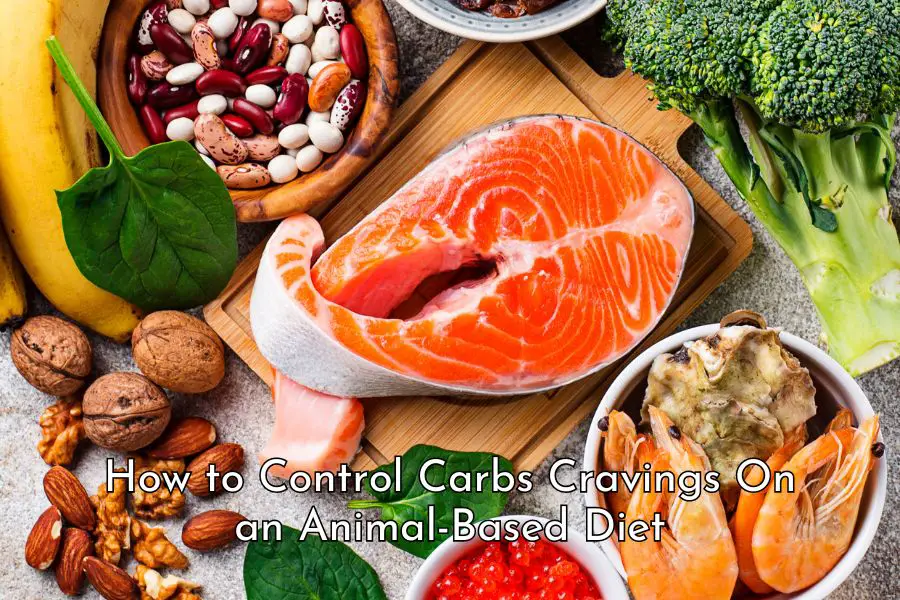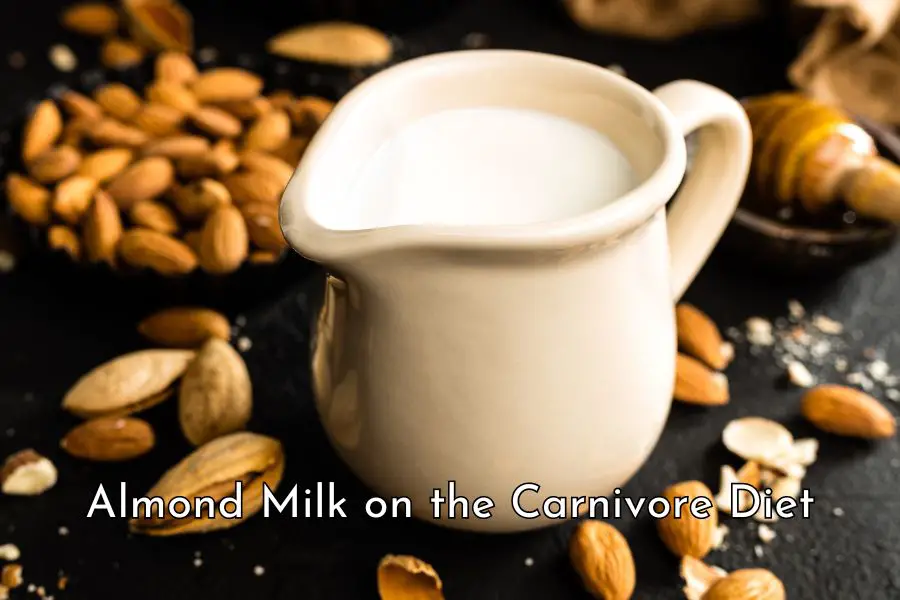A common question amongst people who are new to the carnivore diet is whether they can eat as much as they want as long as it is animal source food.
Generally, you can eat as much as you want on the carnivore diet if you eat nose-to-tail and whole food from grass-fed, pasture-raised, or wild-caught animals. If you can’t eat this way for whatever reason, you can still eat as much ruminant meat as you want but only eat other animal source foods sparingly. However, it is beneficial to restrict your feeding window and occasionally fast for various amounts of time to give your body a chance to rest and rejuvenate.
Read on to find out the underlying reasons for this recommendation plus three food lists for your easy references:
- Foods that you can generally eat as much as you want on the carnivore diet
- Foods that you should eat in moderation on the carnivore diet
- Foods that you should totally avoid or eat very sparingly on the carnivore diet.
Why you can generally eat as much as you want on the carnivore diet
I’ve mentioned this many times on this site but I just need to say it again here: our ancestors were hyper-carnivorous apex predators that ate mostly meat from large animals for 2 million years.[1]
As a result of this extremely long and slow evolutionary process, the human body has been well adapted to a meat-based diet.
Despite the rapid change in available food choices in recent times, our genetic makeup hasn’t caught up with these changes and remains virtually the same as that at the end of the paleolithic period.[2]
The modern human body is designed to eat meat still. In primates, a larger brain is associated with high energy density food. With the largest brain among primates, humans need the highest density foods like animal fats and proteins. Humans have longer small intestines and shorter large intestines that are typical of carnivores’ gut morphology. Furthermore, the acidity of the human stomach is even higher than in carnivores, equaling that of scavengers indicating a meat diet in which the acid would provide protection from harmful bacteria.
When we eat the food we are meant to eat, which is mostly animal source food, our body will instinctively know when it has had enough and when it’s time to stop.
It is indeed very hard to overeat the food that your body is designed to eat. You will feel nauseous and sick trying to stuff yourself with more meat than your body can handle.
The same thing happens with animals in the wild when they eat the food they are supposed to eat. Giraffes, koalas, pandas, seals, lions, bears, and tigers don’t gorge themselves. They eat until they’ve had enough and that’s why we never see obese animals in the wild.
You can do this experiment and see for yourself:
- Get an ample meat supply, lots of steaks would be the best, and see how much meat can you eat in one sitting
- Order a few pizzas and sides or any other standard takeaways you like and see how much you can eat in one sitting
- Compare the calories consumed in the meat-only meal vs the takeaway meal.
I bet you will find that you can’t eat too much meat but can mindlessly eat a whole pizza or more, a few sides, and a soft drink or two without even trying. And a quick estimate will show you that the calorie content of the meat-only meal is substantially higher than the other meal, especially if it contains a lot of processed foods.
However, does that mean you can eat as much as you want, whatever food you want as long as it is an animal source food? Unfortunately, the answer is no due to the enormous and unhealthy changes in the way our food is produced these days.
In the sections below, we will go through the foods that you can certainly eat as much as you want, the foods that you should eat in moderation and the foods that you should avoid or have only occasionally.
Foods that you can generally eat as much as you want on the carnivore diet

Our ancestors ate mostly meat for millions of years. But they had access to good quality meat from animals that roamed freely in the open grasslands. They also ate them fresh and whole.
Today, most of the meat we eat is from farmed animals that are raised in unsatisfactory conditions. Their diets are also vastly different from what they would have eaten in the wild.
However, while farmed pigs, poultry, and fish are most likely to spend their entire life indoors in crowded cages or aquafarms and are fed an unnatural diet, ruminants like cows, sheep, and goats are mostly raised outdoors and are fed a diet closer to their natural diet.[3]
Ruminants also have a lower level of polyunsaturated fat which has been linked to higher cancer risk and negative impacts on the immune system and good cholesterol. [4] For example, beef and lamb fats have only 4% polyunsaturated fat, whereas lard and chicken fat have 11% and 21% respectively. [5]
In addition, ruminants have better omega 6 to omega 3 ratios than pork and poultry. Beef and lamb’s omega 6 to omega 3 ratios are 1.4 and 2.1 respectively[6] which are much closer to the 1:1 ratio that our ancestors are thought to have consumed. [7] Lard and chicken fat’s ratios are substantially higher at 10.2 and 19.5 respectively. [8]
In summary, you can eat as much as you want on the carnivore diet if you can afford to eat nose-to-tail and whole food from grass-fed, pasture-raised, or wild-caught animals. However, if you can’t eat this way for whatever reason, you can still eat as much ruminant meat as you want.
If you can’t afford ruminant meat, can’t access it readily, or don’t eat for whatever reasons and choose to eat pork and poultry instead, try to stay with less fatty cuts to avoid excessive polyunsaturated fat consumption.
Foods that you should eat in moderation on the carnivore diet
The following are the foods that you should have in moderation on the carnivore diet:
- Liver. Liver is simply the best natural multivitamin that you can buy. It is packed with so many essential vitamins and minerals and high in proteins. However, liver is also very high in vitamin A and there is a concern of vitamin A toxicity in high doses. Though you can eat liver regularly, try to have not more than a couple of slices a day. To find out exactly how much liver you can eat in a day with different types of liver, please read this post.
- Other organ meats. Other organ meats such as kidneys, hearts, brains, tongues, and stomachs are also super nutritious and there is no study that shows excessive consumption of these organ meats causes health problems. However, historically, our ancestors certainly didn’t eat a lot of organ meats relative to muscle meats. Imagine going hunting with your tribe and sharing everything between members, you would have a share of a bit of everything but you wouldn’t have a lot of organ meats to eat.
- Dairy products. As I have written in this post, milk and dairy products are nutritious and you certainly can have them occasionally as a part of the carnivore diet. However, again, from a historical perspective, our ancestors did not have access to milk until they started domesticating animals around 10,000 years ago. So, if tolerated, it is best to consume dairy products in moderation only.
- Fish and other seafood. As mentioned above, farmed fish are raised in small crowded enclosures, fed unnatural diets, given antibiotics and injected vaccines. Salmons, one of the most commonly consumed fish, are also given colorings to dye their flesh pink to appeal to consumers. If you can’t afford to pay for wild-caught fish, it makes sense to limit farmed fish consumption to just a couple of times a week.
- Eggs. Eggs are a very nutritious whole food and you can add them regularly to your diet. However, our ancestors were unlikely to have consumed a lot of eggs throughout evolutionary history. Therefore, it’d be a good idea to have them in moderation. Personally, I find a couple of eggs a day on most days is about enough.
Foods that you should totally avoid or eat very sparingly on the carnivore diet
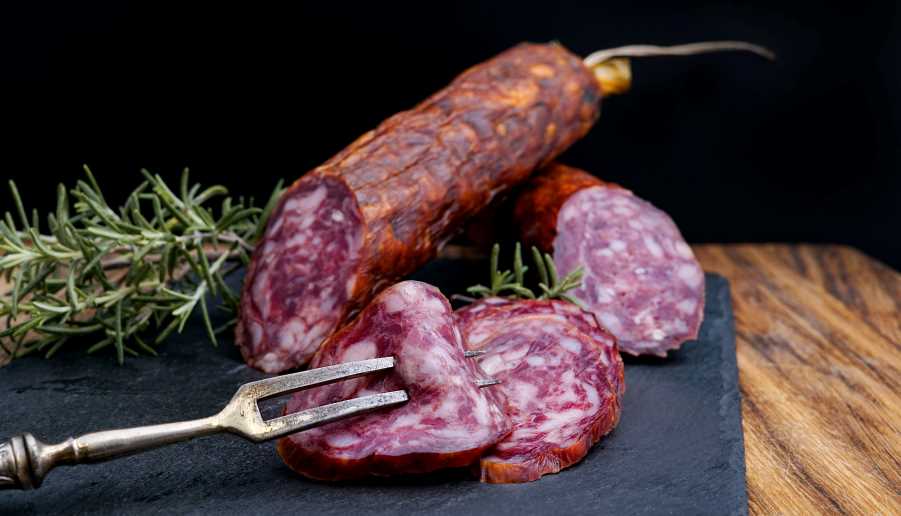
The foods that you should totally avoid or eat very sparingly on the carnivore diet are processed meats.
Processed meats are meats that have been processed through means like salting, smoking, curing, and adding preservatives and other chemicals to achieve desired flavors and prolong shelf life.
Examples of processed meats are ham, sausages, bacon, hot dogs, dried meat, beef jerky, tinned meat.
It is best to avoid or keep your consumption of processed meats to a minimum because:
- This is not how our ancestors ate for millions of years. If human history is reduced to a 24 hours time lime, for approximately the first 23 hours and 55 minutes, we ate unprocessed food. Preserving, mostly through drying, salting, and fermenting, began in the last 5 minutes around the time of the advent of agriculture. And the use of additives like preservatives and nitrites only occurred during the last 5 seconds. Though humans have an amazing ability to quickly adapt to different kinds of foods, changes at the genetic level are exceedingly slow. We simply are not equipped to handle processed foods in such a short period of time.
- There is some evidence from epidemiological studies that shows an association between the consumption of processed meat and increased health risks. For example, this study published in the Journal of Internal Medicine finds that “for the consumption of 50 g day processed meat, the risks were statistically significantly increased for most of the studied diseases (4% for total prostate cancer, 8% for cancer mortality, 9% for breast, 18% for colorectal and 19% for pancreatic cancer, 13% for stroke, 22% for total and 24% for cardiovascular mortality and 32% for diabetes)“. Although epidemiological studies can only show associations and can’t prove causation, it makes sense to minimize added harmful chemicals as much as we can in our food intake.
Fasting has many health benefits
Although you can eat as much healthy food as you want on the carnivore diet, you should practice intermittent fasting and do longer fasts occasionally because:
- Historically, our ancestors did not have constant access to an abundance of food all the time. They had to hunt, scavenge and gather to survive. They would have feasted after a successful hunt but fasted or made do with whatever they could find to survive until the next kill.
- It has been found that fasting has many health benefits including improvements in blood pressure, total lipid profile and inflammatory markers, increase in insulin resistance, weight loss, and lower cardiovascular risks.[9, 10, 11, 12] This makes logical sense. When your body is not busy digesting food, it can burn off the stored fat while focusing on cleansing inside out and fixing underlying health issues.
Fasting is not hard even if you have never done it before. Here are a few tips to get started:
- Avoid snacking between meals. If you eat to satiety at each meal, it’s unlikely that you would need to snack
- Practice intermittent fasting i.e. reduce your feeding window gradually
- For example, if currently your first meal is at around 7 am and your last meal is at around 7 pm at night, you can either eat your dinner a couple of hours earlier or skip breakfast
- If you eat dinner a couple of hours earlier, you would have fasted for about 14 hours a day
- If you skip breakfast and have lunch at 12pm, you would have fasted for around 17 hours a day
- Try a longer fast every now and then. Once you’ve mastered intermittent fasting, try a longer fast every now and then. Begin with a few 24-hour fasts, then add in 36-hour fasts, 48-hour fasts and 72-hour fasts. I have been doing 24-hour fasts regularly but would occasionally do a fast for a few days. For longer fasts, please consult your doctor, especially if you have underlying health problems.
Conclusion
The simple fundamental rule of the carnivore diet is to mimic the way our ancestors ate for millions of years. And that way is to eat nose to tail, eat fresh whole food from animals that have been well-raised.
Though generally you can eat as much as you like this way, it is beneficial to throw in a fast with different lengths every now and then to give your body a rest and a chance to rejuvenate.
Disclaimer: The information in this post is for reference purposes only and not intended to constitute or replace professional medical advice. Please consult a qualified medical professional before making any changes to your diet or lifestyle.

